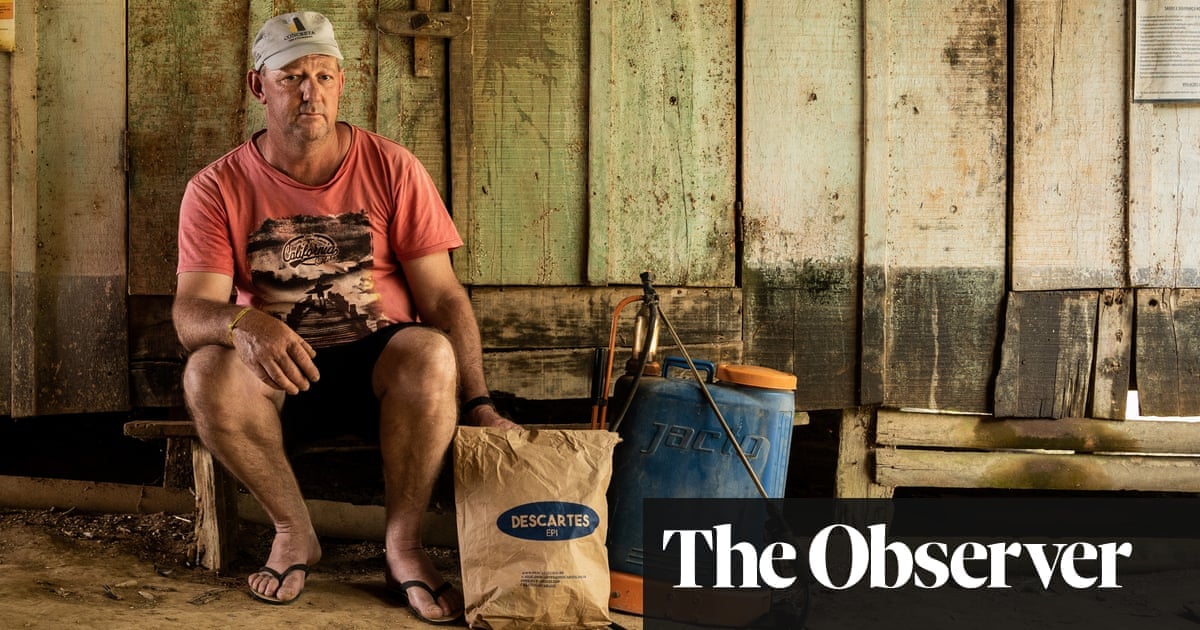- cross-posted to:
- dangerdust
- cross-posted to:
- dangerdust
Valdemar Postanovicz was at home after a day tending to his tobacco crop when his limbs seized up. “All of the right side of my body was paralysed. I couldn’t feel my foot and my hand. My mouth twisted to the right,” he says.
He feared it was a stroke. In fact, he was suffering symptoms of acute pesticide poisoning. Postanovicz, 45, had absorbed Reglone, a powerful herbicide based on the chemical diquat. “It was only one time in my life, but I felt so sick,” he says.
Postanovicz lives in Paraná, southern Brazil – the country’s agricultural heartland. But his accidental poisoning can be traced more than 6,000 miles from South America to Britain, where there is a high chance the pesticide was made.
Records obtained under freedom of information laws by Unearthed, Greenpeace’s investigative unit, and the NGO Public Eye reveal that despite a ban on their use in the UK, diquat and other toxic pesticides are being legally exported around the world – with large volumes going to developing countries.
I wouldn’t expect anything less of us.


